10 Awesome Benefits of a High-Protein Diet
10 Awesome Benefits of a High-Protein Diet
Ever found yourself puzzled by the whirlwind of diet trends claiming the spotlight? Amidst this storm, the high-protein diet stands out—not as a fleeting trend but as a cornerstone of a genuinely balanced lifestyle. At the heart of countless success stories, this approach has steadily climbed the ranks of health and wellness strategies. Why? Because it taps into the essence of what our bodies genuinely need to thrive.
In this article, we’re diving deep into the world of nutrition to uncover the awesome benefits a high-protein diet has to offer. So, if you’re wondering if this popular eating style is right for you, keep reading.
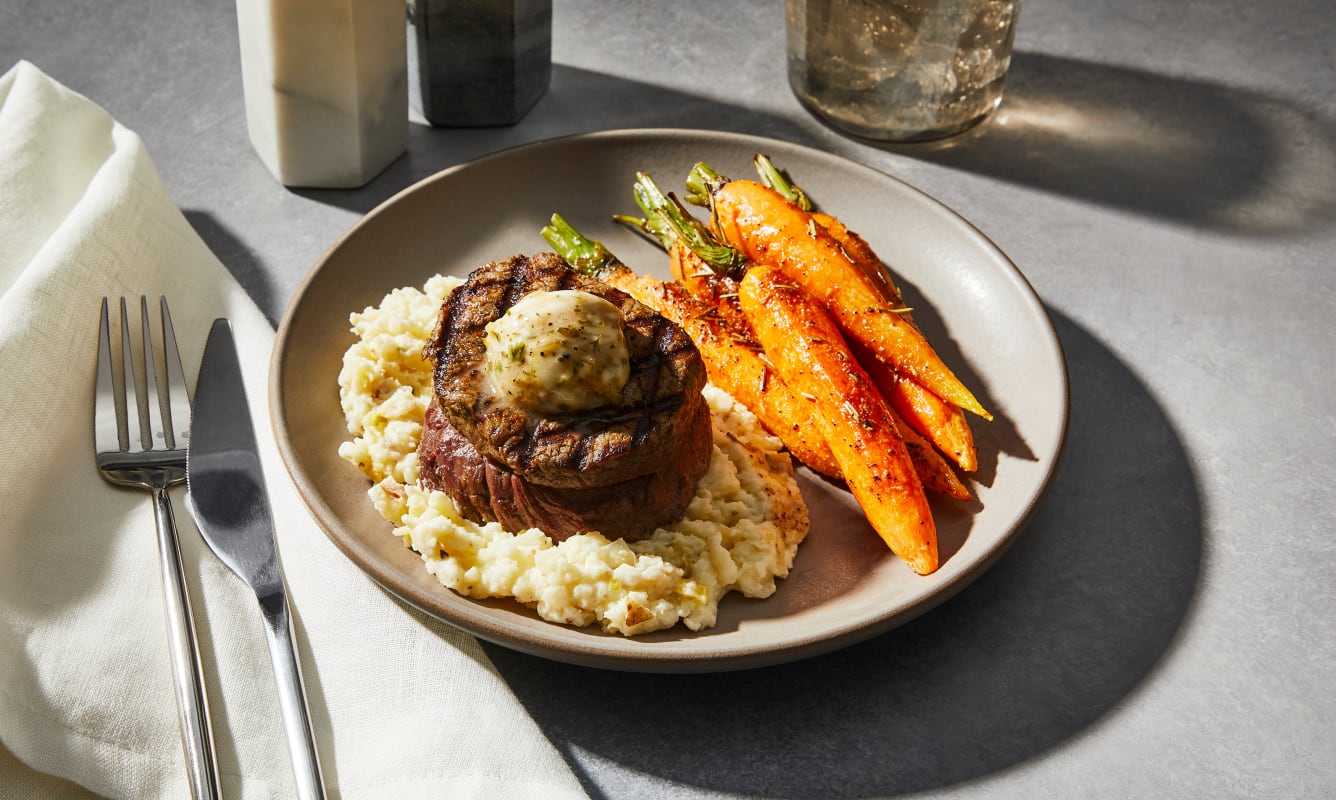
What Is a High-Protein Diet?
A high-protein diet is precisely what it sounds like—a dietary approach that prioritizes foods rich in protein. Instead of fixating on carbohydrates or fats, this eating plan focuses on incorporating ample protein into your meals.
Doing so equips your body with the essential building blocks known as amino acids, which play a crucial role in various bodily functions. Now, you might wonder how much protein is considered “high-protein”? A high-protein diet typically involves consuming around 25 to 35% of your daily calorie intake from protein sources. This percentage can vary depending on individual needs and goals.
What Are the Benefits of a High-Protein Diet?
So, what’s the big deal about a high-protein diet? Let's take a closer look:
Supports Weight Management
One of the standout benefits of a high-protein diet is its ability to support weight management. Increasing your protein intake makes you more likely to feel satisfied after meals, which can lead to consuming fewer calories throughout the day.
Protein also has a higher thermic effect than carbs or fats, meaning your body uses more energy to digest it, supporting your metabolism. This combination of satiety and increased calorie burning can be a powerful ally in managing body weight.
Supports Muscle Growth and Strength
For those hitting the gym to build muscle and increase strength, a high-protein diet can be your best friend. Protein is essential for muscle repair and growth since it provides the amino acids your muscles need to recover and grow stronger after exercise. Whether you're into weight lifting, strength training, or just looking to maintain muscle mass, upping your protein game can help you achieve your fitness goals.
Improves Satiety and Helps Curb Cravings
Ever found yourself raiding the fridge an hour after lunch? A high-protein diet might be the solution you're looking for. Protein is more satiating than carbohydrates and fats, meaning it can keep you feeling fuller for longer. This can lead to a natural reduction in calorie intake and help keep those pesky cravings at bay. By incorporating protein-rich foods into each meal and snack, you can stabilize your hunger hormones and make sticking to your eating plan a breeze.
Supports Bone Health
Contrary to popular belief, a high-protein diet can support your bones. Adequate protein intake maintains bone density and strength over time, especially when combined with physical activity and sources of calcium. By including a variety of protein sources, such as dairy products, leafy greens, and legumes, you can ensure your bones have the nutrients they need to stay strong.
Boosts Metabolism and Energy Levels
Support your metabolism with a high-protein diet. Protein consumption increases the energy your body expends during digestion, offering a slight edge in metabolic rate. This metabolic lift, alongside the sustained energy release from digesting protein, can keep you feeling more energized throughout the day. This is because proteins take longer to break down, providing a more stable and consistent energy source than the quick spikes from carbohydrates.
Supports Cardiovascular Health
Incorporating lean proteins into your diet, such as chicken breast, fish, legumes, and nuts, can support your heart health. These foods can help maintain healthy blood pressure levels, contributing to overall cardiovascular wellness. The key is choosing proteins that are low in saturated fats and high in essential nutrients, ensuring you're meeting your protein goals and taking care of your heart.
Enhances Cognitive Function and Alertness
A diet rich in protein can also support your brain health. Amino acids from protein are vital for neurotransmitter functions, which play a key role in cognitive processes and mood regulation. Regular protein consumption can help maintain brain function, alertness, concentration, and memory.
Supports Healthy Aging
Maintaining muscle mass and strength becomes increasingly important as we age to preserve mobility and prevent falls. A high-protein diet can help older adults retain their muscle mass and support overall physical health.
Enhances Hydration and Electrolyte Balance
While not as direct as drinking water, consuming protein-rich foods can contribute to overall hydration. Many high-protein foods, especially fruits and vegetables high in water content, can help maintain your body's fluid balance.
Plus, proteins are essential for the body's maintenance of electrolytes, as they play pivotal roles in cellular water distribution. Incorporating a balanced intake of protein helps ensure your body stays hydrated and electrolyte levels remain stable, supporting overall cellular function and health.
<li><h3>Promotes Healthy Skin, Hair, and Nails</h3>A high-protein diet is essential for maintaining healthy skin, hair, and nails. Proteins, such as collagen and keratin, are fundamental building blocks for these tissues. Adequate protein intake can help improve skin elasticity, promote hair growth and strength, and maintain strong, healthy nails. By ensuring you get enough protein, you support the structural integrity and appearance of these vital components of your body, contributing to a youthful and vibrant look.<br> </li>What’s on the Menu When Following a High Protein Diet?
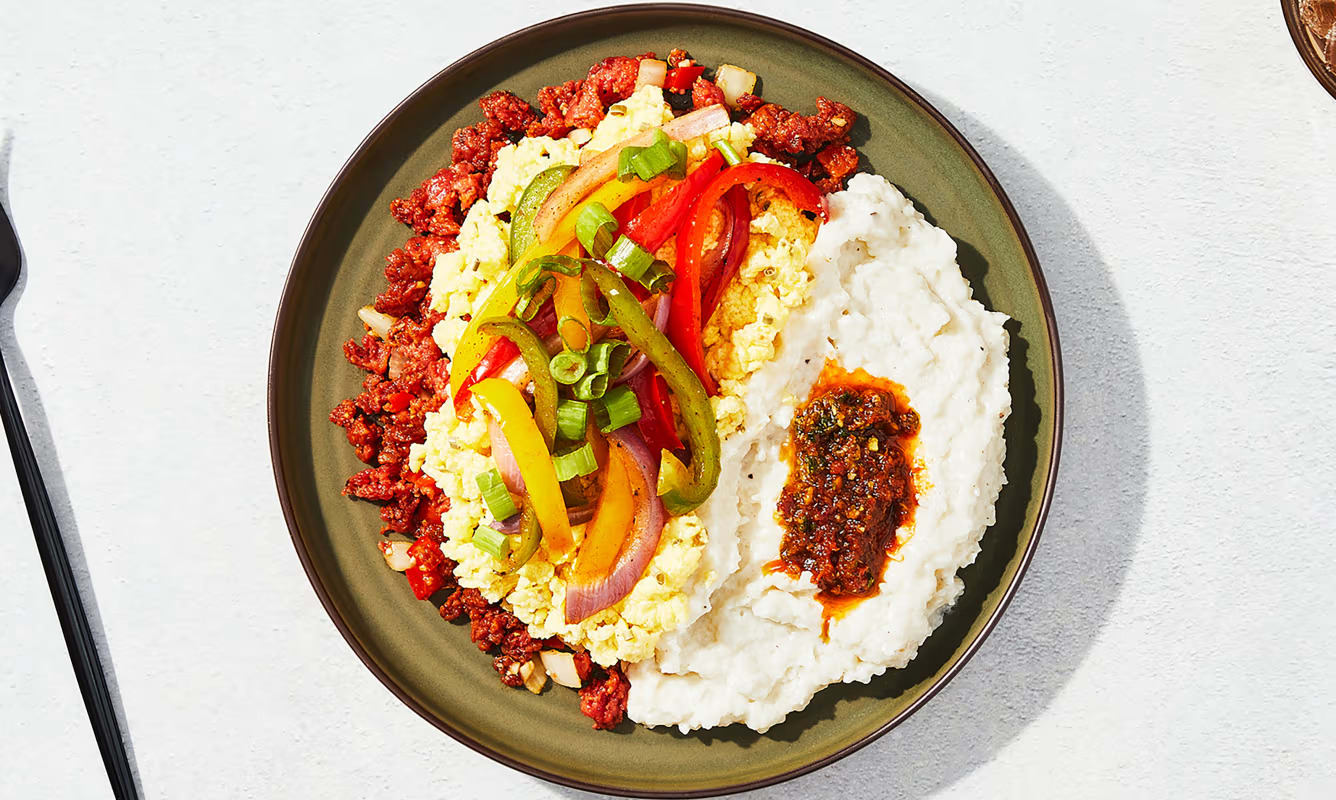
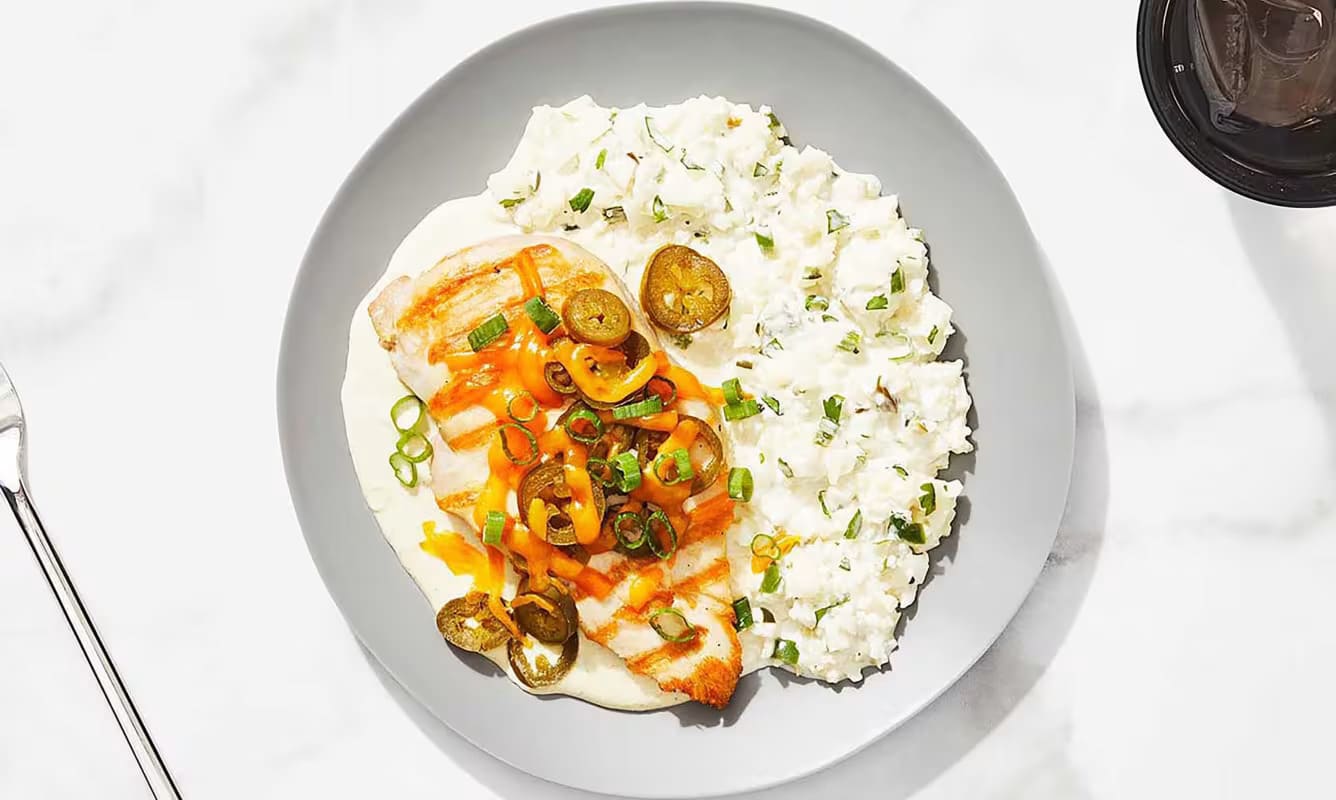
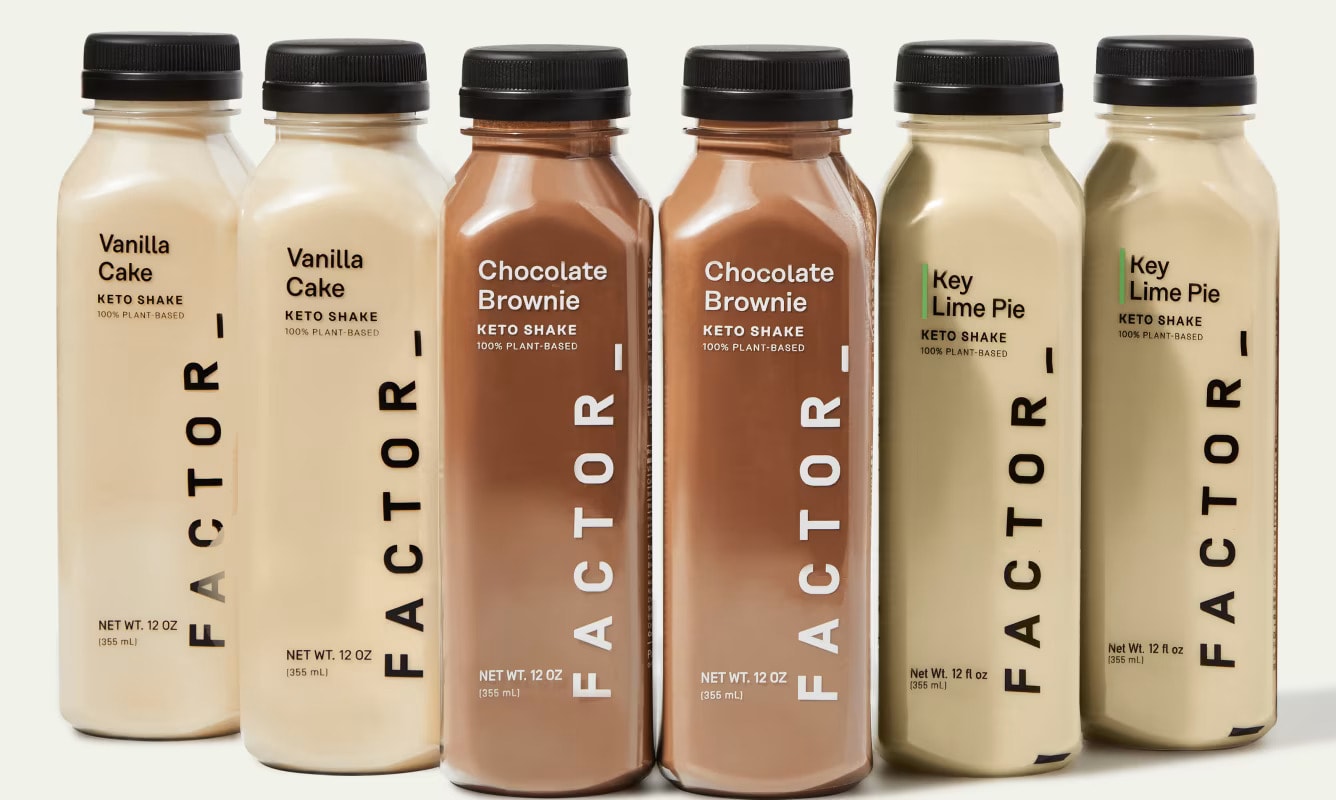
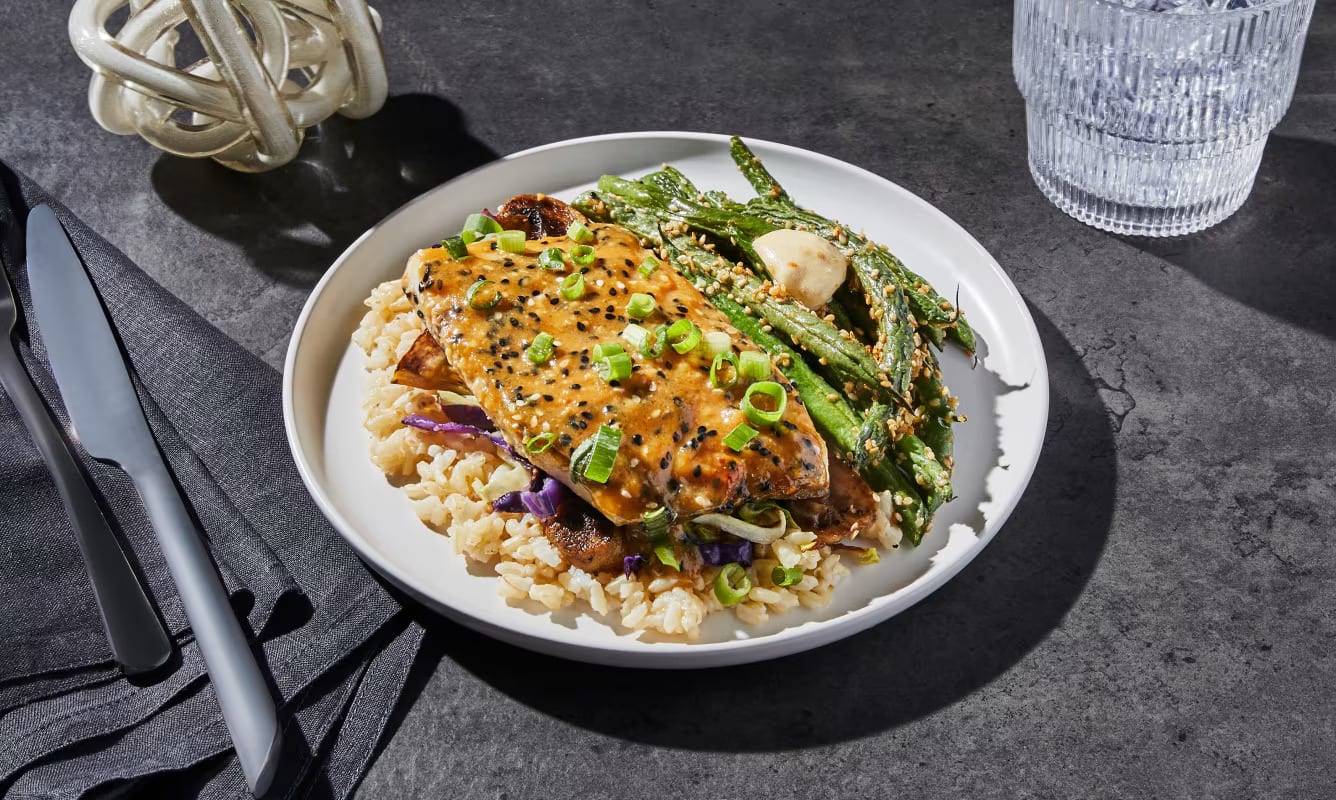
Protein-Packed Tips for Success
Embarking on a high-protein journey? Here are some tips to keep you on track:
Diversify Your Protein Sources
It's easy to fall into the chicken-and-broccoli rut. Break free by exploring the wide world of protein. Mix it up with plant-based options like lentils, chickpeas, and quinoa alongside your meats and fish. Each source brings its unique blend of amino acids and nutrients, contributing to a truly balanced diet. Remember, variety is not just the spice of life—it's the foundation of a well-rounded, high-protein diet.
Meal Prep Made Simple
We get that life's busy, and sometimes meal prep feels like a second job. Here's where we come in. Our Protein Plus plan allows you to choose high-protein meals delivered straight to your door.
Factor offers a range of chef-prepared, dietitian-approved meals that slide effortlessly into your high-protein eating plan. Think of us as your culinary sidekick, ready with high-protein meal delivery when you're too swamped to cook but committed to your protein goals. It's about making smart, tasty choices that fit your lifestyle.
Track Your Intake
Knowledge is power, especially when it comes to macronutrients. Keep an eye on how much protein you're consuming to ensure you're hitting your targets. Apps and food diaries can be great tools for this, helping you monitor not just your grams of protein but the quality and variety of your sources.
Get Creative With Protein Snacks
Snacks are an excellent opportunity to sneak more protein into your diet. Instead of reaching for chips or sugary treats, opt for high-protein snacks like edamame, cheese sticks, or a hard-boiled egg. These satisfy your hunger and provide a steady energy supply without the crash of high-carb snacks.
Stay Hydrated
Upping your protein intake means you'll need to drink more water. Protein metabolism requires extra fluid, so keep that water bottle handy to support your body's natural processes. Staying well-hydrated also helps with digestion and nutrient absorption, making every bite count.
Balance Is Key
High protein doesn't mean protein only. Add fruits, vegetables, whole grains, and healthy fats to your diet. These provide essential vitamins and minerals and dietary fiber, which work hand-in-hand with protein to keep your digestive system running smoothly.
Understand Your Personal Protein Needs
While embarking on a high-protein diet, it's crucial to tailor your protein intake to your personal health goals and activity level. Not everyone needs the same amount of protein.
Factors like your weight, age, muscle mass, and how much you exercise all play a role in determining your optimal protein intake. A quick chat with a dietitian can provide personalized guidance, ensuring you consume enough protein to meet your body's needs without going overboard.
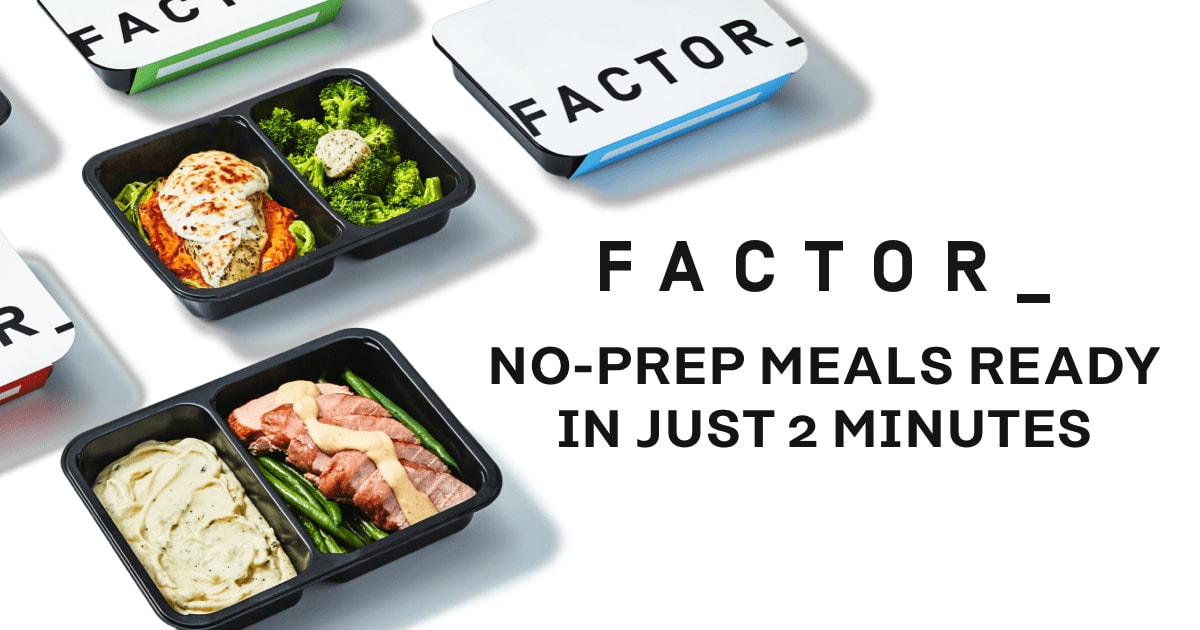
Fueling Your Journey
As we wrap up our exploration into the high-protein landscape, it's clear this isn't just a diet but a lifestyle shift that champions your health and wellness at every meal. Embracing a high-protein diet means prioritizing your body's needs, fueling your muscles, supporting your heart, and nourishing your brain.
Ready to make your health a priority without sacrificing flavor or convenience? Explore our menu and find your new favorite dish. Let's embark on this journey together, one delicious meal at a time.